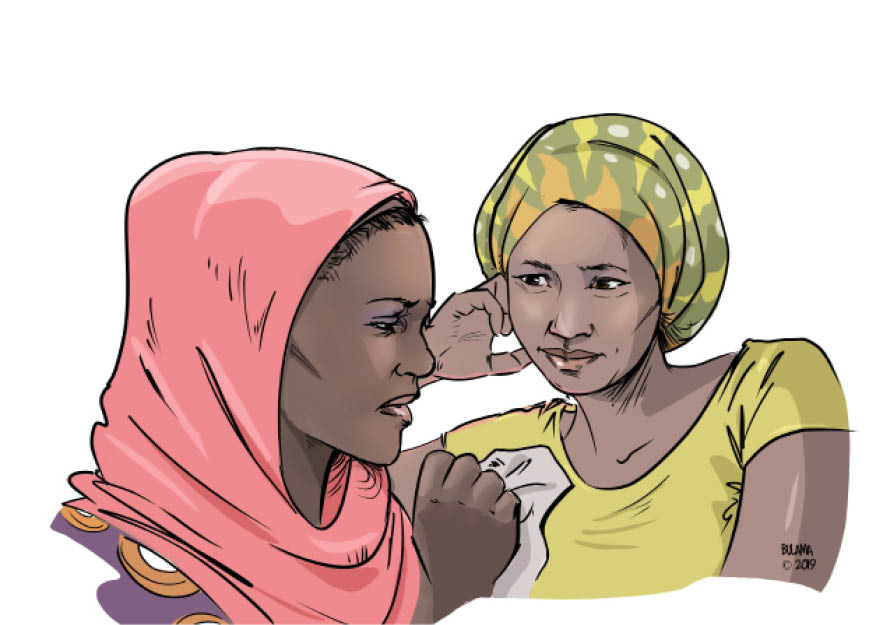Don’t be judgmental
If there is one big lesson life reminds me of, it’s not to be judgmental. We all have that one friend who feels relieved when they share their problems with us. Sometimes all they want from us is a listening ear and comforting words. But it can be disastrous when friends share their problems with […]

If there is one big lesson life reminds me of, it’s not to be judgmental. We all have that one friend who feels relieved when they share their problems with us. Sometimes all they want from us is a listening ear and comforting words. But it can be disastrous when friends share their problems with us and in confidence, hoping to find comfort and encouragement but end up being castigated and judged.
Binta Gimba, 39-year-old banker, says, “Most people forget that there is punishment for everything we do in this life. Someone shares his/her problems with you and instead of unburdening their already heavy shoulders, you add to their pain. In my religion, there is punishment for anyone who adds to the pain of others. If you have no words of encouragement to give, then just listen and give them a shoulder to cry on.”
Sherifat Adeniyi, 41-year-old educationist, says, “Many fail to acknowledge that depression is real and the only way to help people in a depressed state is to listen and give them words of encouragement. Most times, people complain about certain things happening in their lives and almost every time we fail to notice that that person is gradually falling into a depressed state. We then end up making the case worse by giving a judgmental verdict against them. There are better ways and time to relate negative things; you don’t have to be so blunt at that particular moment when the person is at his/her lowest.”
Fatima Dauda, 38-year-old civil servant, says, “Sometimes, being too judgmental is the reason most people turn against us or hate us with a passion. I used to have a friend who until her death never found a reason to like her aunty, why? Her aunty was too strict and judgmental towards her. She believed that there was nothing she could do to please her aunt. Even when she tried to open a comfortable line of communication with her aunt, her aunt always judged her and found nothing good in her. She eventually became depressed as her aunty was all the family she had. I am sure her soul is at peace now as no one can judge her anymore.”
Janet Sylvester, 40-year-old doctor, says,’ “It’s really a problem for us, especially in Africa. I understand that the judgment comes from our African “no nonsense” stance where some people simply bare their minds on hearing the person’s complaint. We forget that for someone to come discuss her problem with you, the person holds you with a certain kind of regard and sees you as being responsible. So it’s expected that after listening, the best thing is to comfort and give some time before you advice or scold. Even when scolding or advising, your points can be without being harsh and judgmental.”
It’s disheartening how quick many of us are to judge and give verdicts on challenges of others after someone must have discussed their problems with us. We should learn not to judge and fault people over challenges they may be having that aren’t of their own making. Never be judgmental, you don’t know what they have passed through to the extent of sharing it with someone. It’s known that women keep a lot of things to themselves but when they decide to share it, they only need to unburden and not to be judged at the end of the day.
